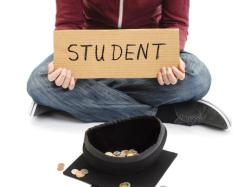What to do with a student loan refund check?
A student loan refund check typically occurs when the total financial aid, including grants and loans, exceeds the cost of your educational expenses. It's essential to manage this refund wisely to avoid unnecessary debt and financial challenges in the future. Here are some recommended steps on what to do with a student loan refund check:
Review Your Budget:
- Assess your educational and living expenses to determine if you truly need the entire refund. Create a budget to understand your financial needs for the semester or academic year.
Return Unused Funds:
- If the refund check includes more money than you need to cover your educational expenses, consider returning the unused portion to your loan servicer. This can help minimize the amount of debt you accrue.
Use Funds for Education-Related Expenses:
- Prioritize using the refund for education-related expenses, such as textbooks, supplies, housing, and transportation. This ensures that the funds are directly contributing to your educational success.
Build an Emergency Fund:
- If your basic educational needs are met and you don't need the entire refund, consider setting aside a portion as an emergency fund. This fund can be used for unexpected expenses, helping you avoid taking on additional debt in case of emergencies.
Pay Down Existing Debt:
- If you have other outstanding debts, such as credit card balances or high-interest loans, consider using the refund to pay down or pay off these debts. This can help improve your overall financial situation.
Save for Future Educational Expenses:
- If you anticipate future educational expenses, save the refund for upcoming semesters. This can be particularly useful if you plan to attend graduate school or have additional educational costs in the future.
Invest in Career Development:
- Consider using the refund to invest in your career development. This could involve attending conferences, workshops, or training programs that enhance your skills and increase your employability.
Avoid Unnecessary Spending:
- It might be tempting to use the refund for non-essential items or activities. However, try to avoid unnecessary spending and prioritize using the funds for education and financial stability.
Explore Work-Study or Part-Time Employment:
- If you have the capacity to balance work with your studies, consider finding part-time employment or work-study opportunities. Earning additional income can reduce your reliance on student loans and refunds.
Understand the Terms of Your Loan:
- Familiarize yourself with the terms of your student loans, including interest rates and repayment schedules. Understanding these terms can help you make informed decisions about managing your student loan refund.
Seek Financial Counseling:
- If you're uncertain about the best course of action, consider seeking financial counseling. Many universities offer financial counseling services to help students make informed decisions about their finances.
Remember that student loans are a form of debt, and managing them responsibly can contribute to your long-term financial well-being. By being intentional about how you use your student loan refund, you can make choices that support your education and financial goals.
What should I do with a student loan refund check to manage it effectively?
Here are some tips on how to manage a student loan refund check effectively:
- Prioritize your expenses. Make a list of all of your expenses, including tuition, fees, books, housing, food, and transportation. Then, prioritize your expenses and decide how much money you need to allocate to each expense.
- Pay down your student loans. If you have student loans, using your refund check to pay them down is a great way to save money on interest in the long run.
- Build an emergency fund. Having an emergency fund can help you cover unexpected expenses, such as a car repair or a medical bill. Aim to save at least 3-6 months of living expenses in your emergency fund.
- Invest in yourself. You can use your refund check to invest in your future by taking courses to improve your skills, starting a business, or saving for a down payment on a house.
How can individuals make informed decisions about utilizing their student loan refund?
To make informed decisions about utilizing your student loan refund, it is important to consider the following factors:
- Your financial situation. This includes your income, expenses, debt, and savings.
- Your financial goals. What are you hoping to achieve with your money? Do you want to pay down debt, save for a down payment, or invest for the future?
- Your risk tolerance. How much risk are you comfortable taking with your money?
Once you have considered these factors, you can start to develop a plan for how to use your refund check. It is important to be realistic about your goals and to make a plan that is sustainable in the long term.
Are there financial planning tips for optimizing the use of a student loan refund?
Here are some financial planning tips for optimizing the use of a student loan refund:
- Create a budget. A budget can help you track your income and expenses so that you can make sure you are spending your money wisely.
- Set financial goals. Having financial goals can help you stay motivated to save and invest your money.
- Automate your finances. Set up automatic transfers from your checking account to your savings and investment accounts so that you can save and invest money without having to think about it.
- Get professional help. If you need help managing your finances, you can consult with a financial advisor.
It is important to remember that there is no one-size-fits-all answer to the question of how to manage a student loan refund check. The best approach will vary depending on your individual financial situation and goals. However, by following the tips above, you can make informed decisions about how to use your refund check in a way that will help you reach your financial goals.






